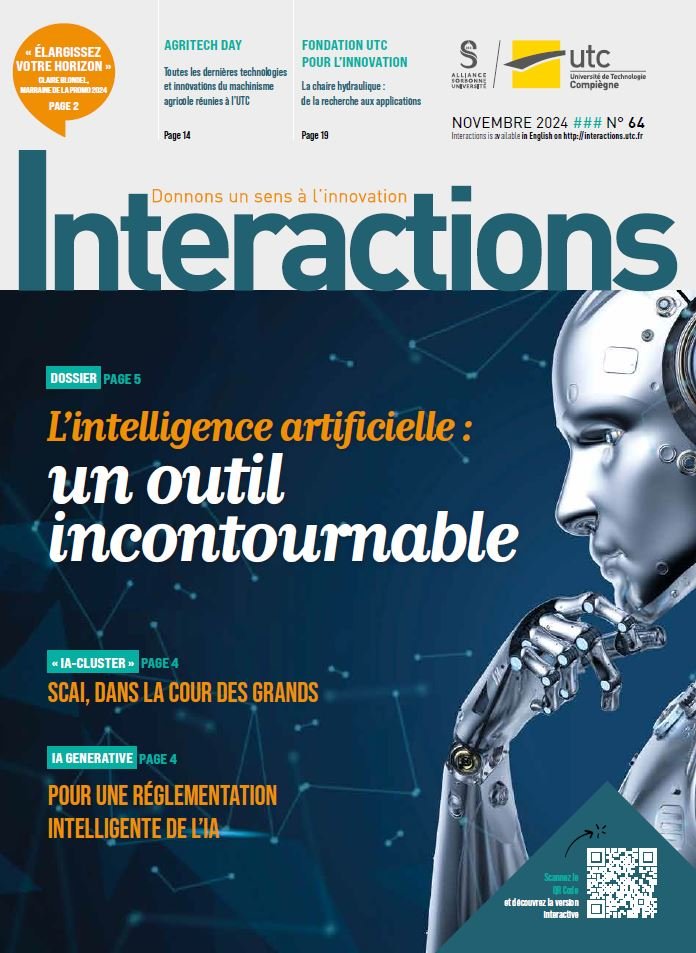A commitment to the environment

From the outset, UTC-Compiegne has distinguished itself by promoting curricula including the human and social sciences. Its aim is to train ‘humanist engineers’.
A research project on the environmental commitment of engineers has been set up with the support of the UTC’s research department and in partnership with Antoine Bouzin, a doctoral student registered at Bordeaux University.“It’s a project that is as much about student participation in the GE90 research seminar as it is about the IS00 UV, which is at the cutting edge of teaching. These are relatively new issues and the body of knowledge is far from stabilised. Hence the very strong link between teaching and research, in contrast to subjects where teaching is based on stabilised knowledge”, explains Hadrien Coutant, sociologist at the UTC-Costech Lab. The aim of the research project? “To try and understand the driving forces behind the ecological commitment of engineers. It’s a project based on the following empirical observation: there are a lot of engineers in the pro-ecology movements, even though, paradoxically, engineers are the least politicised profession among university graduates”, he points out.
The Marie-Curie project
This doctoral network project falls into the “Science of Excellence” category of the EC Horizon Europe programme. What is special about this project? “It aims to fund theses and doctoral training in order to create a community of researchers around an innovative subject,” explains David Flacher, an economist at UTC-Costech and the is fully involved in this project. “We proposed working on economic policies for the ecological transition. The idea is that if we want to think about this bifurcation, we not only need to break out of the disciplinary silos, but also out of the academic ghettos, by involving other players”, explains David Flacher. What are the main themes of this project? “We have defined three main themes. The first concerns the critical analysis of the socio-technical dimensions of the transition. The second concerns the choice of macroeconomic scenarios that take into account material flows, North-South relations and product life cycles, for example. Finally, there is a more socio-ecological section looking at the transformation of organisations, work, the role of democracy and so on,” explains David Flacher. The project will involve 11 PhD students.
Functional economics
As a senior lecturer in economics, Frédéric Huet quickly became interested in the issue of sustainability. One of his areas of research? “If we think about sustainability, we have to ask ourselves what changes to the economic model this implies. So we need to think about issues such as the use values to be mobilised, the remuneration to be applied, and so on. I quickly became interested in the function-intensive economy. In this model, the aim is no longer to sell the goods themselves, but to sell the use of the goods. From an environmental point of view, this model presents a number of virtues. On the one hand, we can pool the resources needed to produce these services. For example, you don’t necessarily have to own your own car to use an individual transport service. But the most interesting thing is to realise that from the moment we stop selling material goods and start selling their use, the producer remains the owner from the beginning to the end of the life cycle. Like Michelin, we could lease tyres to road hauliers and be paid on which retains ownership of the product, has every interest in ensuring that the tyres are as longlasting as possible, since it is the company that bears the costs of the product throughout its life cycle, and this is excellent in terms of preserving the environment,” explains Frédéric Huet. Another axis, transverse between UTC-Costech and UTC-TIMR, is personified by Olivier Schoefs, Director of Process Engineering at Costech and TIMR, who is also working on bio-waste management. This project is designed to meet the requirements of the Climate and Resilience Law, which, from 2024, will require local authorities to deploy bio-waste recycling services. “In this particular case, we need to answer a number of questions: what services should be put in place, what economic model should be used for these methanisation or other systems, how should they be organised, how will users take ownership of these services, etc.? Especially as, in the case of bio-waste, unlike a traditional life cycle analysis, we are faced with its variability from one district to another, from one season to another, etc.,” says Frédéric Huet.
Low-technicisation
For Hugues Choplin, a lecturer and researcher in philosophy and sociology, low-techisation requires “high science”, a high degree of interdisciplinarity and, above all, a different vision of innovation. Moreover, some manufacturers are starting to take this issue on board, leading to concrete technological research projects. For example? A research project involving UTC-Costech and Magali Bosch from UTCRoberval Labs, looking at the sustainability of the aeronautical industrial system in 2050. “With Airbus Atlantic, we’re looking at the sustainability of the aeronautical industrial system in 2050. Some of the manufacturer’s players want to go beyond the issue of reducing CO2 emissions through the use of hydrogen, for example, and are looking at the cost to the climate of aircraft manufacture itself. In this case, how can the production process itself be low-tech? In other words, move towards a form of ‘permafacture’, as they call it themselves”, explains Hugues Choplin.
Tensions between developing renewable energies and maintaining biodiversity
Pascal Jollivet, a lecturer and research scientist in economics, was approached in response to a call for projects led by Price Waterhouse Cooper on “the tensions or conflicts between the development of renewable energies, on one hand and the maintenance of biodiversity on the other”. “What was interesting about this project, which I began by developing, was that it was based on a mix of expertise and research”, says Pascal Jollivet. What was his precise role in the project? “I focused in particular on “controversy” in the sense of public controversy. What was the idea? The idea was to study the antagonism between the development of renewable energies and the preservation of biodiversity. Hence, I had to reconstruct the controversies linked to this debate by drawing on the social networks to find out what people were saying on the subject. I drew on two different sources. The first was what ‘average’ citizens were saying, and the second was what academics were saying, based on research articles. From there, I compared the way in which the controversy was expressed by research scientists and how it was expressed in civil society. And I realised that in each group, there was a sort of ‘black hole’, in other words a certain number of unanswered questions but, above all, that there were subjects that were addressed in one group and completely ignored in the other, such as the issue of collapse, absent from the scientific community, even though people made the link between maintaining biodiversity and the fear of collapse”, explains Pascal Jollivet.




